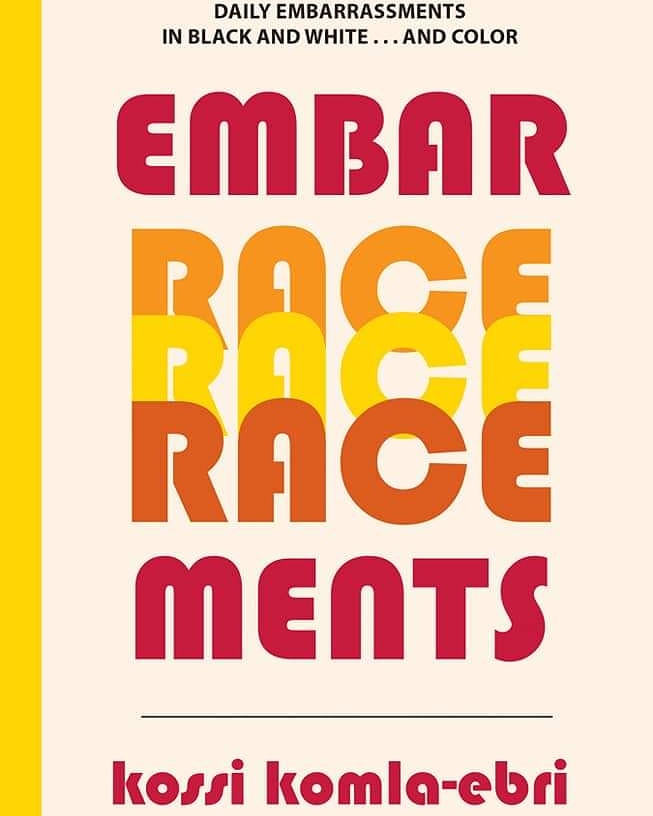NEW YORK-CALANDRA ITALIAN AMERICAN INSTITUTE
FALL 2022 WRITERS READ SERIES
Thursday, September 15, 2022, 6pm
Kossi Komla-Ebri reads from EmbarRACEments: Daily Embarrassments in Black and White . . . and Color (Bordighera Press, 2019) and Home (Bordighera Press, 2022)
Italy’s former minister for integration Cecile Kyenge has said: “Every black person living in Italy has his or her own rich repertoire of ‘Embarrassments.’”
This is the embarrassment of difference, the discomfort related to the Other, the culturally different, and especially the visibly different. In many countries, people in majority populations believe that those Others seek to take away their jobs, customs, family—their identity. There is an urgent need to unpack and deconstruct these stereotypes and imagery and to alter public discourse. This book talk will contribute to this effort by focusing on issues of inclusivity, racism, and cultural conflict.
Abstract
EmbarRACEments: Alterity and Cultural Differences
Kossi A. KOMLA-EBRI
This presentation focuses on issues of inclusivity, racism, and cultural conflict as
presented in Kossi Komla-Ebri’s two volumes of ironically humorous anecdotes,
translated in English as EmbarRACEments: Daily Embarrassments in Black and White
. . . and Color.
As the former Italian Minister for Integration has pointed out: "Every black person
living in Italy has his or her own rich repertoire of "Embarrassments." This fortunate
neologism, devised by Kossi Komla-Ebri, stands for situations that do not fall into the
cases of cruel, violent or at least intentional discrimination, but are small-scale
incidents of racism that occur without their perpetrator being properly aware of them.
Embarrassment, like an unseemly gaffe, creates discomfort. Like a Freudian slip, it
reveals repressed judgments and prejudices. But as much as each of these episodes is
not serious, embarrassments hurt their victims because they are everyday and because
they illustrate a widespread mentality populated by stereotypes."
Embarrassment is the embarrassment of difference, the discomfort related to the Other,
the culturally different and especially the visibly different.
The fear of the Other for all that is different and unusual is normal, a fear nurtured more
and more by negative imagery about the Other. Today this fear of the different is
becoming a real "Invasion Syndrome." People have come to believe that those who are
different are here to take away their jobs, customs, family...in one word, their identity.
There is an urgent need to unpack and deconstruct these stereotypes and imagery, to
alter public discourse







